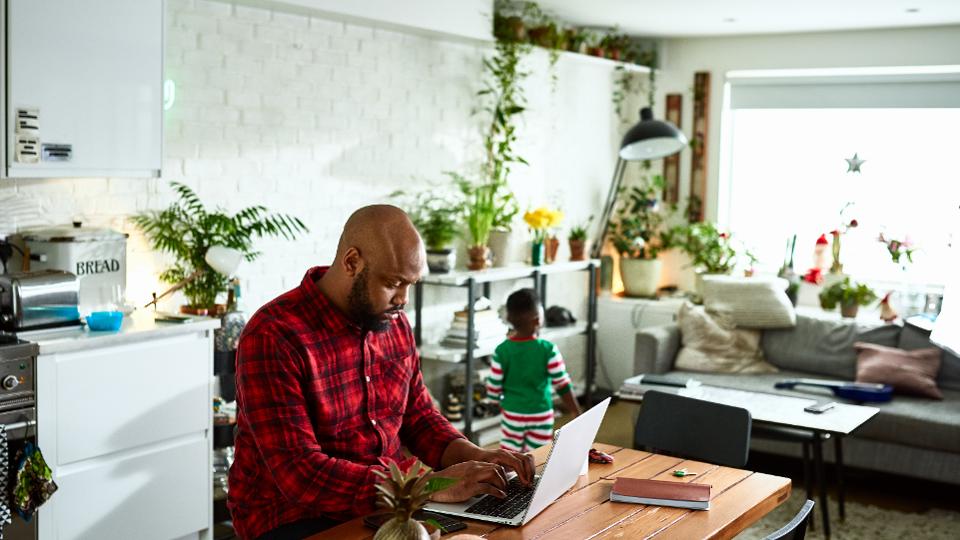
Image courtesy of Forbes.com
This blog first appeared at nsbe.org.
Teleworking, telecommuting, or my preferred term, “working from home (WFH),” introduces a whole new set of challenges and opportunities, especially for the millions now practicing it for the first time, on short notice, as a result of the current public health emergency. The web provides a trove of information about WFH, but researchers differ widely about its balance of benefits and disadvantages, while posing many unanswered questions.
I decided to reached out to my colleagues who are my association’s WFH veterans, to get their tips on how to be productive while working at home. Thanks to Jessica Sussen, Ruth Mayo McNeil and Phillip Jones for their valuable input.
Here’s their advice:
1) Set Aside a Designated Place (and a Soundtrack) for Work
If possible, find one special place to work in your house or apartment. Choose a place with minimal distractions that signals to you that it’s work time and that when you leave it, you’re no longer “at work.” Having a designated location enables you to take breaks, separate your home life from your work life and maintain your psyche.
Also, storing your laptop and mouse, notebooks, calendar, etc. all in one place ensures that the items you use every day are not easily misplaced. For those who work better with background noise, create a couple of playlists, or have white noise playing in your work area. One colleague streams R&B and gospel using Tidal. This creates “a vibe” in the office that helps her stay on track. For those who prefer silence (like me), then find the vibe that works for you. “To each his/her own!”
2) Plan Your Work, and Work Your Plan
Keep a notebook or app to capture and track your tasks (“to-do’s”). One colleague checks off her to-dos throughout the day, which helps her measure her productivity and stay motivated.
3) Remember When to Say “When”; Develop and Keep Routines and Schedules
Make up a routine! It’s okay if you don’t always stick to it, but having an ideal routine gives you a structure to help you enjoy your personal life and stay productive in your work life.
If allowed, develop a schedule that enables you to work when you’re most productive. That may be early in the morning and/or after 5 p.m.
Stick to the working hours that you set. During her first year of WFH, one of our colleagues literally worked around the clock. For some reason, she felt the need to be available more than before — for night meetings, webinars, etc. — since she wasn’t physically in the office. A veteran now, she warns against yielding to the unconscious (or conscious) pressure to always be available. Now, our colleague puts the laptop and work phone in the desk drawer at 6 o’clock every night. Doing so enables this WFH veteran to make time for the folks at home.
Keep to your former sleep schedule. If you used to set your alarm at 6 a.m. to make the “real world” commute to the office, continue to do that. Your body and mind will maintain their agility. With children at home, one of our veterans finds it extremely helpful to rise before the kids (and her spouse) do, “so it’s not ‘rush, rush, rush’ off the bat.”
4) Stay Connected With Your Colleagues
Video chat with your colleagues! Seeing their faces helps you feel connected and included.
5) Take Care of Your Essential Needs
Try to eat healthy. It’s very easy to overindulge if you’re surrounded by snacks and other food throughout the day. Develop a mealtime schedule that is similar to the one you maintained in the office. For instance, one colleague stops eating after 7 p.m.
Stay hydrated throughout the day as well, and make sure you move around as often as you can. It is shockingly easy to sit at your computer for hours and belatedly realize it’s 8 p.m. and you haven’t moved all day! Find time to exercise: that may be early in the morning or in the evening after the workday.
6) What About the Kids?
For colleagues with young children at home, plan every outing. It sounds anal, but it works. One colleague purchased sensory boxes to keep play organized: Play-Doh, Magna-Tiles, books, canvases and paint, and magnifying glasses/binoculars all have separate bins. She and the kids play with them two to three times per day.
AND, most important, schedule morning and afternoon times to go outdoors (weather permitting). Races, soccer, bike or scooter riding, gardening: all of these kinds of activities are adventures for young children.
Here are some good containers for your sensory boxes.
7) Practice Gratitude
Working from home can be “pretty awesome”! You’ve cut out that horrible commute and have a new opportunity to be creative with your day.


